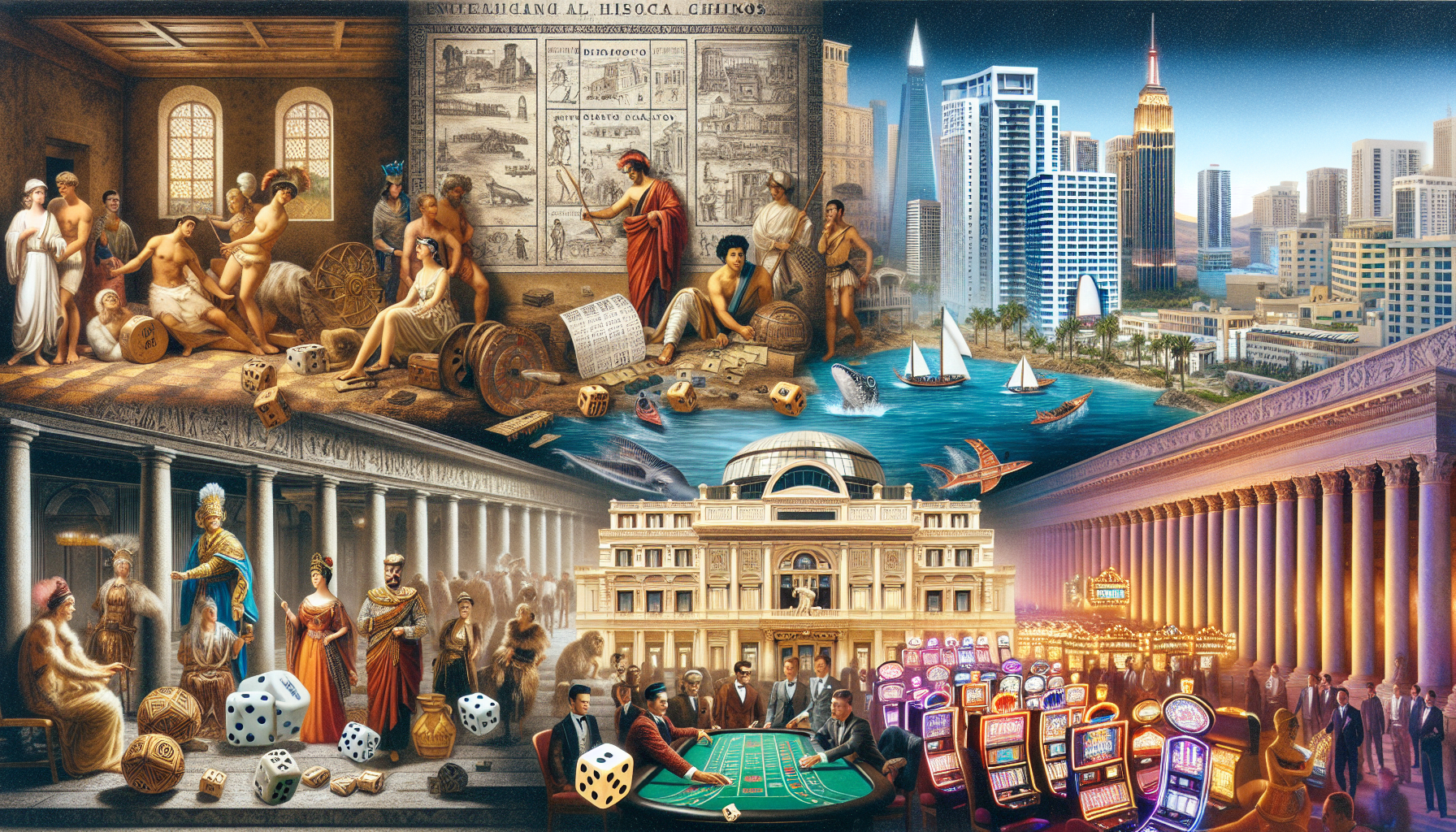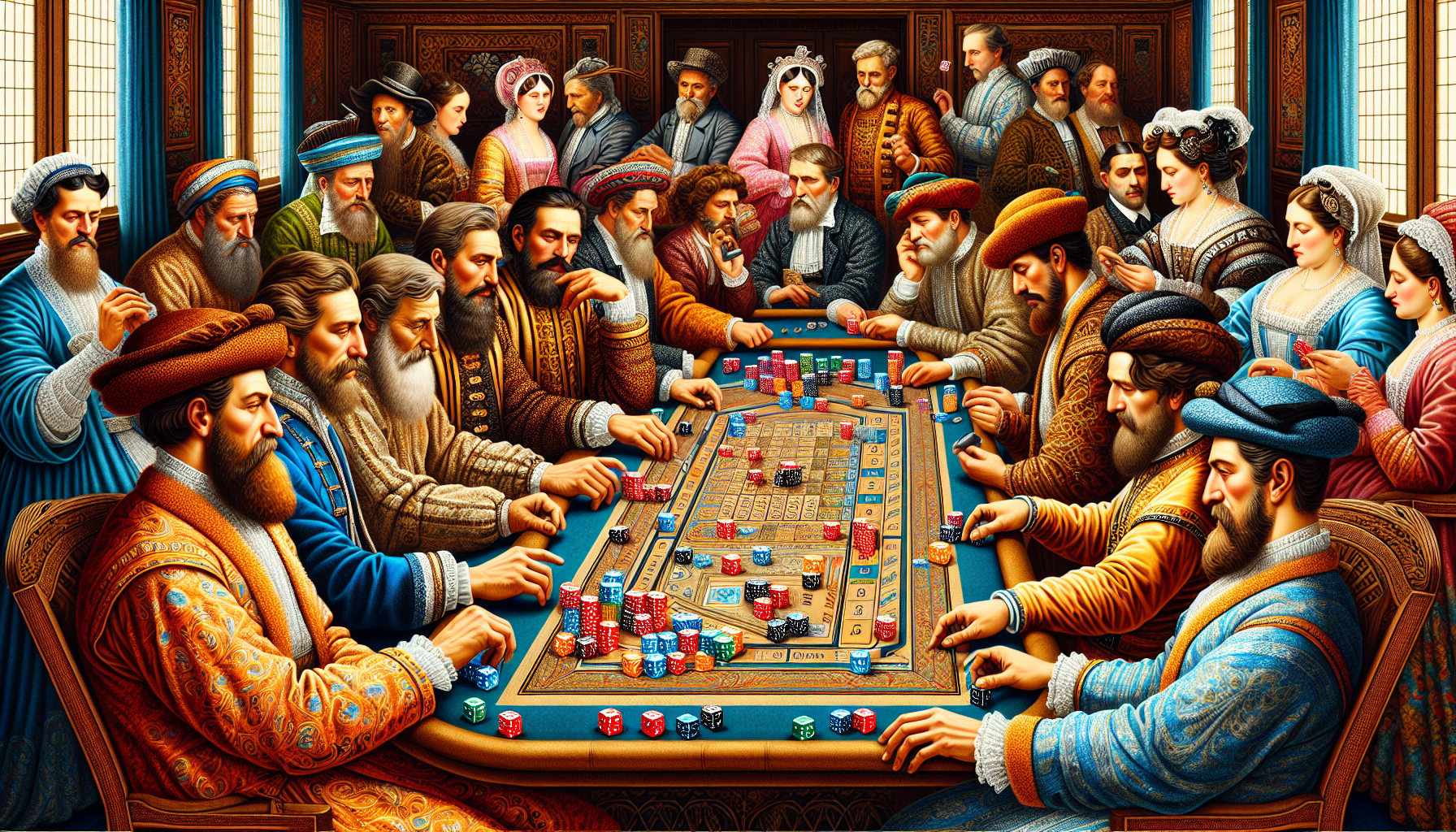The History of Casinos: From Ancient Gambling to Modern-Day Resorts

Table of Contents
- Chapter 1: The Dawn of Gambling
- Chapter 2: The Birth of the Casino
- Chapter 3: The Evolution of Casinos
- Chapter 4: Modern-Day Casino Resorts
- Conclusion
Chapter 1: The Dawn of Gambling
1.1 Ancient Civilizations and Gambling
Gambling has been an integral part of human society since ancient times. Early evidence of gambling activities can be traced back to the Mesopotamian era, where dice-like objects were found in archaeological sites. Similarly, the Chinese civilization showcased games of chance around 2300 BC, indicating their early fascination with gambling.
In Ancient Egypt, gambling was not just a pastime but also a method of divination. The ancient Greeks and Romans also indulged in gambling, with many of their games forming the foundation for modern-day gambling activities.
1.2 The Role of Chance and Divination
In many ancient societies, gambling was intertwined with divination and the belief in fate. Various objects, such as bones and stones, were used not only for playing games but also for predicting the future. This demonstrates how ancient cultures perceived gambling as a tool to understand the unknown.
The role of chance in these societies highlights the human fascination with uncertainty and fortune, which remains a significant aspect of gambling today.
Chapter 2: The Birth of the Casino
2.1 The First Gambling Houses
The concept of a centralized gambling venue began to take shape in the 17th century. Gambling houses emerged across Europe, providing a designated place for individuals to play games of chance. These establishments laid the groundwork for modern casinos.
In 1638, the first known gambling house, The Ridotto, was established in Venice. This marked the beginning of regulated gambling, offering patrons a chance to gamble in a controlled environment.
2.2 Venice and the Establishment of the Ridotto
The Ridotto was a governmental attempt to control and regulate gambling activities. It provided a luxurious setting for aristocrats and wealthy individuals to indulge in gambling. The Ridotto’s success paved the way for similar establishments across Europe.
Despite its eventual closure, The Ridotto’s influence on the gambling industry was profound, establishing a model for future casinos.
Chapter 3: The Evolution of Casinos
3.1 Casinos in the 19th Century
The 19th century witnessed significant changes in the gambling landscape. Casinos became more widespread, with notable establishments appearing in France and Germany. The Monte Carlo Casino, established in 1863, became an iconic symbol of luxury and gambling.
During this era, casinos evolved beyond mere gambling houses, incorporating entertainment and social gatherings, thus attracting a broader clientele.
3.2 The Advent of Las Vegas
The early 20th century saw the rise of Las Vegas as the gambling capital of the world. With the legalization of gambling in Nevada in 1931, Las Vegas began transforming into a haven for gamblers. Iconic casinos, such as the Flamingo and the Sands, were established, drawing visitors from across the globe.
This era marked the beginning of the casino as an entertainment complex, offering not only gambling but also shows, dining, and accommodations.

Chapter 4: Modern-Day Casino Resorts
4.1 The Global Expansion of Casinos
Today, casinos are not confined to specific regions but have spread across the world. From the opulent resorts of Macau to the integrated resorts in Singapore, casinos have become global attractions. These establishments offer a mix of gambling, entertainment, and luxury accommodations.
Modern casinos are designed to provide a complete experience, catering to a diverse range of guests beyond traditional gamblers.
4.2 Casinos in the Digital Age
With the advent of the internet, online casinos have become a significant part of the gambling industry. Digital platforms offer the convenience of gambling from the comfort of one’s home, attracting a new generation of players.
The digital age has also introduced innovations such as virtual reality casinos, providing an immersive gambling experience, further expanding the reach and appeal of casinos.

Conclusion
The history of casinos is a fascinating journey from ancient gambling practices to the sophisticated resorts of today. Casinos have evolved significantly, adapting to cultural and technological changes while maintaining their core appeal of excitement and chance. As we look to the future, the casino industry continues to innovate, ensuring its relevance and allure in a rapidly changing world.

